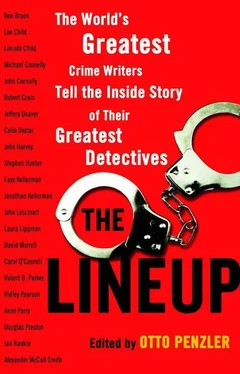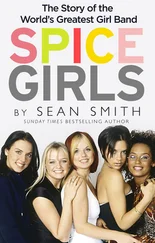Otto Penzler - The Lineup - The World's Greatest Crime Writers Tell the Inside Story of Their Greatest Detectives
Здесь есть возможность читать онлайн «Otto Penzler - The Lineup - The World's Greatest Crime Writers Tell the Inside Story of Their Greatest Detectives» весь текст электронной книги совершенно бесплатно (целиком полную версию без сокращений). В некоторых случаях можно слушать аудио, скачать через торрент в формате fb2 и присутствует краткое содержание. Жанр: Прочая документальная литература, на английском языке. Описание произведения, (предисловие) а так же отзывы посетителей доступны на портале библиотеки ЛибКат.
- Название:The Lineup: The World's Greatest Crime Writers Tell the Inside Story of Their Greatest Detectives
- Автор:
- Жанр:
- Год:неизвестен
- ISBN:нет данных
- Рейтинг книги:4 / 5. Голосов: 1
-
Избранное:Добавить в избранное
- Отзывы:
-
Ваша оценка:
- 80
- 1
- 2
- 3
- 4
- 5
The Lineup: The World's Greatest Crime Writers Tell the Inside Story of Their Greatest Detectives: краткое содержание, описание и аннотация
Предлагаем к чтению аннотацию, описание, краткое содержание или предисловие (зависит от того, что написал сам автор книги «The Lineup: The World's Greatest Crime Writers Tell the Inside Story of Their Greatest Detectives»). Если вы не нашли необходимую информацию о книге — напишите в комментариях, мы постараемся отыскать её.
The most venerated and bestselling authors in the mystery world reveal how they created their most beloved serial characters.
The Lineup: The World's Greatest Crime Writers Tell the Inside Story of Their Greatest Detectives — читать онлайн бесплатно полную книгу (весь текст) целиком
Ниже представлен текст книги, разбитый по страницам. Система сохранения места последней прочитанной страницы, позволяет с удобством читать онлайн бесплатно книгу «The Lineup: The World's Greatest Crime Writers Tell the Inside Story of Their Greatest Detectives», без необходимости каждый раз заново искать на чём Вы остановились. Поставьте закладку, и сможете в любой момент перейти на страницу, на которой закончили чтение.
Интервал:
Закладка:
“And no, sir, I’ve no idea what it means.”
For another essay, we were given the phrase “Dark they were and golden-eyed” and told to use it as our starting point. I wrote about two parents searching a house filled with drug addicts, seeking their errant son.
Words were a passion of mine. I would do crosswords and flick through the dictionary, noting interesting words (including, after the exchange noted above, paradox). And those song lyrics for the Amoebas had become poems, one of which I entered for a national competition. It was called “Euthanasia” (another of those great-sounding words) and was runner-up. When my success was noted in the local newspaper, my parents learned for the first time that I was writing poetry. I hadn’t dared tell anyone until then. (Later, I would learn that Muriel Spark’s first publication had also been a prize-winning school poem.)
I’d always been a successful chameleon, playing the part of fitting in. I played soccer (badly) and had a bicycle. I hung around the street corners with the tough kids. But when a rumble started, I’d be on the periphery of the action, taking it all in without getting involved. When I went home, I’d head for my bedroom and write poems about the fights, the booze, the first sexual fumblings, and then my notebook would go back underneath my bed, hidden from view.
II
Okay, so I’m seventeen now, and I want nothing more than to be an accountant.
See, nobody in my family has been to university, but it seems I’m brainy and it’s expected I’ll go. And if you’re working-class, you go to university to escape your roots-to get a good career: doctor, lawyer, dentist, architect…
I had an uncle in England, and he owned his own house (unlike my parents) and had a flash car (neither of my parents could even drive). Our summer holidays were spent at seaside resorts in Scotland and England, or in a cramped trailer twenty miles north of my hometown. My uncle always seemed to have a tan from foreign holidays. He was the most successful man I knew, and I wanted the same for myself.
Problem was, I wasn’t very good at math. And I was growing to be ever more in thrall to books and to writing. I’d cranked out a couple of “novels” (probably twenty pages long, scribbled on jotters stolen from my school). The first was about a teenager who feels misunderstood so runs away from home and ends up in London, where he is ground down by life before eventually committing suicide. The second was a retelling of Lord of the Flies, set in my high school. It was starting to dawn on me: why the hell was I thinking of going to university to study a subject I had no real interest in? I broke the news to my parents and watched their shoulders sag. They were in their late fifties by this point, not too far from retirement. What, they asked, would I do with a degree in English? It was a fair question.
“Teach” was all I could think to reply.
I started looking at possible universities. St. Andrews was the closest, but I liked reading modern American and British novels, and “modern” at St. Andrews meant John Milton. I knew this because I’d asked. Edinburgh, however, had a course in “American literature,” so I applied there and was eventually accepted. How well did I know the city? Hardly at all. I’d lived all my life about twenty miles north, but the family seldom ventured that far. I remember being taken there to see a stage version of Peter Pan, and my mother once took me to the castle and a children’s museum. In my last couple of years at high school, I’d made occasional Saturday-afternoon forays with friends. But we would always stick to the same route, taking in all the available record shops, one radical bookshop (where porn, under the guise of “art books,” could be perused), and a couple of pubs where the bar staff had decided we weren’t underage enough to pose a problem.
Arriving in the city in October 1978 as a student was terrifying and exciting. The university had been unable to provide me with accommodation, so I was sharing a room with a school pal in a motel on the outskirts. I was quick to join the poetry and film societies; quick, too, to discover new pubs, live-music venues, and strip bars. I also joined a punk group (as singer and lyricist), so found a new outlet for my stanzas. And I was on the receiving end of a slew of rejection letters from magazines and newspapers.
The poetry society held weekly meetings. Hormonally charged young men (all the poets seemed to be male, the audience fifty-fifty) would recite odes of love lost, love unrequited, love from afar. My poems were a bit different. A typical opening might be:
Mutated machine-guns patrolling the subways
While glue-sniffing kids hang themselves in lift-shafts…
I had another poem called “Strappado” (a form of torture) and yet another telling the moving story of a husband who strangles his young wife on their honeymoon. Where was this stuff coming from? Why was I writing lyrics about addicts and killers and crucifixion? I can’t find anything in my early life to justify this apparent interest in the bizarre and the demonic. I even had an alter ego, a drifter called Kejan, who cropped up in several poems and who would usually be drinking absinthe in Paris or traversing the stews of Alexandria:
A foreign body in the bloodstream of Berne,
Kejan tips the remnants of tobacco
From the pack onto the paper,
His breath scattering the flakes
Onto the floor
To lie wriggling in the draught.
Kejan needs some air…
None of this, it goes without saying, was helping me get laid.
But I did get to meet a lot of “real” writers for the first time in my life. The poetry society had funding to bring one professional poet to do a reading each week, and afterward we would all go for a drink or nine, during which time the poets would attempt to sell us copies of their books and pamphlets while we’d be asking questions such as “How do I get published?” I soon learned that most poets don’t make a living writing but have to supplement their income with other work. I wondered if the same was true of fiction writers.
My poems were far from the Wordsworthian ideal of “emotion recollected in tranquillity.” They were narratives. My characters went places and did things, or things happened to them. (There were always consequences.) I started writing short stories, influenced by Ian McEwan, Jayne Anne Phillips, and anyone else I happened to be reading at the time. I was trying to find out two things: what I wanted to write about, and how to do the actual writing. It took me a while to realize that the thing I really wanted to write about was enveloping me and embracing me every step of the way and with each and every breath I took.
It was Edinburgh itself.
III
This is a haunted city. For centuries it was haunted by the memory that it had once been a thriving capital before signing that status away to London. It’s a city rife with ghost tours. Its cemeteries teem, and there are myriad streets, tunnels, and caves just below ground level. It’s a city that hides itself away from the world. In the past, whenever invaders called, the denizens would scurry underground, emerging once the triumphant armies had tired of taking possession of what appeared to be a ghost town. The city the tourist sees, even today, is far from the whole story. Edinburgh is also home to a bloodstained history. Burke and Hare were serial killers who posed as grave robbers, slaughtering at least seventeen victims before being brought to justice (after which Burke’s skin was crafted into a series of gruesome souvenirs, some of which can be viewed in the city’s museums).
There were stories of well-respected citizens who had confessed to devil worship, of a coach driven by a headless horseman, of covenanters executed and witches burned. By night, the teenage Robert Louis Stevenson used to creep from his home to consort with harlots, poets, and ruffians in the seediest bars he could find.
Читать дальшеИнтервал:
Закладка:
Похожие книги на «The Lineup: The World's Greatest Crime Writers Tell the Inside Story of Their Greatest Detectives»
Представляем Вашему вниманию похожие книги на «The Lineup: The World's Greatest Crime Writers Tell the Inside Story of Their Greatest Detectives» списком для выбора. Мы отобрали схожую по названию и смыслу литературу в надежде предоставить читателям больше вариантов отыскать новые, интересные, ещё непрочитанные произведения.
Обсуждение, отзывы о книге «The Lineup: The World's Greatest Crime Writers Tell the Inside Story of Their Greatest Detectives» и просто собственные мнения читателей. Оставьте ваши комментарии, напишите, что Вы думаете о произведении, его смысле или главных героях. Укажите что конкретно понравилось, а что нет, и почему Вы так считаете.












